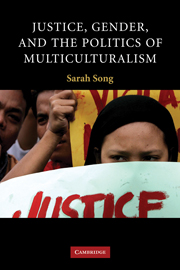4 - The “cultural defense” in American criminal law
Published online by Cambridge University Press: 22 September 2009
Summary
In 1984, a 23-year-old Hmong man, Kong Pheng Moua, who had lived in the United States for six years, abducted a 19-year-old Hmong woman from the Fresno City College campus and forced her to have sex with him. The woman, Xeng Xiong, later called the police and accused the defendant of kidnapping and rape. In his defense, Moua claimed that he was performing the traditional Hmong practice of matrimony, “marriage by capture,” in which even a woman who is willing to get married should resist in order to establish her virtue. He claimed he had not understood Xiong's resistance as expressing non-consent. The court dismissed the rape and kidnapping charges, and Moua was charged with false imprisonment and sentenced to 120 days in jail and a $1,000 fine.
In another case, a Chinese immigrant, Dong Lu Chen, had resided in New York for one year before discovering that his wife was having an affair. A few weeks after this discovery, he beat and killed her. Drawing upon expert testimony from an anthropologist, Chen's defense stressed that in Chinese culture violent retaliation is an acceptable response to a wife's adultery. He was convicted of second-degree manslaughter and sentenced to five years' probation with no jail time, a much reduced punishment than that usually associated with a second-degree manslaughter conviction.
These cases are examples of what scholars have called the “cultural defense.
- Type
- Chapter
- Information
- Justice, Gender, and the Politics of Multiculturalism , pp. 87 - 113Publisher: Cambridge University PressPrint publication year: 2007



